|
Steve Kilbey Sydney Rococo Golden Robot Records https://goldenrobotrecords.com/golden-robot-records/steve-kilbey/ http://thetimebeing.com/ Like many American music fans around my age I didn't become aware of the Anglo/Australian band The Church until the release of their sixth album Starfish and the hit single "Under The Milky Way." I didn't become a fan of The Church until their follow-up Gold Afternoon Fix. That is the album where I jumped on and many who had discovered the band in the previous year quickly jumped off. I had never heard anything quite like Gold Afternoon Fix, an album that infuriated their label Arista Records and caused a rift that saw the label find clever ways to cheat them and sabotage their career. (One story, told to me by a promotion person at BMG, involved the pressing of 10,000 copies of a promo single, which were immediately destroyed and charged to the band.) Gold Afternoon Fix made me a fan and I set about acquiring their back catalog which had recently been reissued on CD to capitalize on their sudden, improbable, success. These albums — one of which was actually two EPs squashed together — were a trove of excellent, moody, jangle goth, which further cemented my interest. I saw The Church play at the Wiltern Theater that year and learned two things:
With that, a large chunk of the audience sprang to their feet and I heard someone say "Sorry Steve!" Thankfully, I've never been that type of fan, not even with Robyn Hitchcock. I only stand at a gig if the power of the music sweeps me to my feet — or there are no chairs. Their next album, the obliquely titled priest=aura, improved on the atmospheric formula of Starfish and Gold Afternoon Fix and stands today as their masterpiece albeit with not one single for A&R guys to promote, even with a packet of cocaine stuffed in the sleeve. It was, however, a stunning and immersive album from start to finish, both musically and lyrically. The Church released one more album for Arista Sometime/Anywhere. Founding guitarist Peter Koppes had left, taking a lot of the atmosphere with him, and the remaining two members, Kilbey and 12-string guitarist Marty Willson-Piper, bowed out with a stripped down record of lovely songs that would never be heard on the radio. With The Church seemingly over I investigated some of the solo albums Steve Kilbey had released. Albums like The Slow Crack, Earthed, Unearthed and Remindlessness all seemed to suffer from poor production and self-indulgence. Kilbey seemed to work better as a collaborator, as evidenced by his work with the late Go-Betweens songwriter Grant McClennan on the side-project called Jack Frost. I was very fortunate to be able see Jack Frost perform as an acoustic duo, which was a delight until the encore portion where each of them were to perform a song from their histories. McClennan played "Cattle And Cane" while Kilbey struggled with the expectation that he sing "Under The Milky Way." After several fits and starts he clenched his guitar to his chest and walked away. I had also checked out solo albums by Willson-Piper and Koppes which confirmed that the greatness of The Church was the sum of their parts. Fortunately, through the sheer force of will of Steve Kilbey, The Church persisted as a prolific Indie recording and touring act, with Koppes back in the fold and new permanent drummer/producer/engineer Tim Powles behind the kit and the controls The Church's approach to writing an album is to jam. The four (now buoyed by guitarist Ian Haug who replaced the disinterested Marty Willson-Piper a few years ago) get in a room with tape rolling, plug in and blow for hours at a time. Kilbey reviews these jams and refines the best moments into songs utilizing his always intriguing lyrics. Through these indie years I have remained an avid fan of The Church and have been rewarded with music from a band that have truly found themselves musically and just keep getting better. Throughout this period I have largely ignored Steve Kilbey's many side projects based on past experience, but when I saw on Amazon that he had a new solo album set to release in the final month of a year that has been a bit disappointing on the musical front, I decided to give Steven Kilbey, solo artiste, one more chance. In Sydney Rococo Steve Kilbey has made a solo album that seems to have benefited from his full attention. The songs are focused, beautiful, compelling, crisply arranged, played and produced and, to the ears of a layman friend of mine, sound like The Church. Well, not exactly. Though Kilbey provides the words, the voice and the musical impetus for The Church, Sydney Rococo bears little resemblance to the band's more recent output, which is rife with unidentifiable sounds and cosmic ambience
0 Comments
Eric Sandberg speaks with former Genesis guitarist Steve Hackett Steve Hackett is one of the most enduring rock artists working today. Despite a long, fruitful solo career. with close to thirty solo albums in his catalog, he is still closely associated with the band he left in 1977. Steve does not avoid, but rather embraces, the association. In addition to releasing a new solo album of original material every two years or so, he has also created modern, sonically superior versions of those classic Genesis songs and goes out of his way to feature them live on massive world tours that would tire a younger man. At the end of January, just weeks before his 69th birthday, Hackett will release a new studio album At The Edge Of Light and embark on a 160 plus date world tour featuring Genesis music, classic solo material and select tracks from the new album. Steve was kind enough to call me late one cold evening from his London home. Here is what we talked about. Eric Sandberg: How are things in London? Steve Hackett: Very cold at the moment. Very cold indeed. Eric: It's actually a bit nippy here in Los Angeles, but it's probably balmy by your standards. SH: You've had such terrible tragedy in that area, haven't you? Eric: It's been a tough month. We had the nightclub shooting here in LA, followed immediately by these devastating fires. I'm fortunate not to have been directly affected by all of this but I know people who were. SH: You think things are going to be there forever and these events just bring home the impermanence of everything. There is just so much crazy stuff you have to deal with in life. Eric: On that note, I've had the opportunity to listen to your new album At The Edge Of Light a few times and the songs on the record appear to address the crazy times we're living in. SH: Yes, there is some of that. There are things addressed lyrically that might not be comfortable for some. I tend to feel that we're living in an era where battle lines are being drawn and we are all arming ourselves...the rise of fascist ideals. It seems like a crazy time. We've got so much technology. We could be helping each other...feeding each other. Instead, we're investing in this fortress mentality. I'm only cautiously optimistic about mankind's future at this point. Eric: I'm hoping that this is all going to turn out to be a great wake up call and that, when we reach the tipping point, cooler and kinder heads will prevail. You appear to address these issues in an oblique and artful way on the album. You titled the opening instrumental "Fallen Walls And Pedestals" which I interpret as the destruction of political and social norms and the loss of civility, while the song "Beasts In Our Time" conjures in my mind names like Trump, Duterte, Timer, Farage, Rees-Mogg... SH: Yeah, It's a worrying time. The extremists have taken over. The terrorists are no longer from far away. Eric: You also show your hopeful side with "The Underground Railroad" one of my favorite songs on the album. It makes you realize that what Harriet Tubman and others like her did, which today we consider heroic, was against the law in her time and punishable by death. SH: Exactly. Yesterday's criminals are today's heroes. Eric: You utilize the voices of Durga and Lorelei McBroom to great effect on this song. It transports you. SH: It was wonderful to work with Durga and Lorelei, both with great voices. There is an aspect of the protest song and gospel but it's also a train song with some blues and country - with the dobro and harmonica to drive it along. The Underground Railroad (Pulitzer Prize-winning book by Colson Whitehead) was the influence for that. I noticed that President Obama and Oprah Winfrey were very high on it so I read it and it inspired the song. Eric: Speaking of inspiration: I'm a longtime fan of your solo career, which I've kept up with over the years. By my count this album will be your 28th studio album. Just going back to 2003 you've released ten studio albums and eleven live albums, not counting your collaborations with Djabe and Chris Squire. How are you doing this? Where is it all coming from? SH: I think I'm just aware that the clock is ticking. Also, my wife (Jo Hackett) and I tend to travel the world in recent years. We've been to some extraordinary places. We've been to India, China and we're preparing to visit Ethiopia next year, having just been to Jordan and seeing Petra while wearing my Indiana Jones hat! We've also just been to Cambodia and saw the fascinating temples there. It's been extraordinary. So I've kind of been doing my Tomb Raider sort of thing and it has been a tremendous source of inspiration for me, seeing amazing things that were created, in some cases, thousands of years ago - things that are still standing, and wondering how a whole city could be carved out of rock. Another example is the Ellora caves in India, where they carved a mountain into a temple with a herd of elephants. Caves and temples...extraordinary stuff. Eric: I think they were able to achieve these incredible feats because they didn't have to stop and check their Facebook and Twitter feeds every five minutes. SH: That's right! And these were things that were not completed in one person's lifetime. There must have been some spiritual impetus driving it. To think that you are contributing to only a small part of something that will be finished by someone else long after you're gone. St. Paul's Cathedral was not completed in Christopher Wren's lifetime. It's the most fascinating building in England. There are certain places like that - that carry an extraordinary power. When the organist plays just one bass pedal note in there, the whole building becomes an amplifier and the sound carries you off into space. If that isn't spiritual I don't know what is. Eric: Let's talk about your process. Some artists compartmentalize. They enjoy their time off, sit on the beach and then they block out six weeks to sit in a room and write songs and another six weeks to arrange and record them. My guess is that you are always working in some way, writing lyric fragments on a scratch pad, humming tunes into your phone and ultimately you sit down with Roger King and turn it all into an album. SH: It's something like that. My wife and I hum melodies to each other and sometimes they're extraordinary and sometimes they're rightfully forgotten. A tremendous amount of stuff gets jotted down over time but only a small fraction of it ever makes it to the stage. There are certain things that surface through all of that. You have to be motivated to produce all of those things knowing that that you're going to be throwing a lot of it away. I couldn't teach anyone how to sit down and write a song. I just wait for ideas to present themselves. I never consciously write anything. If I hear a melody then that's the start of something and I keep adding things to it. But that initial spark - I don't know where that comes from. But without that spark I know that things won't catch fire. I have to have that moment of subconscious creativity. No good will come of me sitting around trying to dream up something. It doesn't happen. Eric: Perhaps the skill aspect is the ability to recognize the moment and have the discipline to take the time to preserve it. I think there are a lot of creative people working 9-5 jobs who are constantly allowing moments of creativity to disappear like vapor. SH: That's right. I'm also trying to write a book at the moment and I'm much better at writing down musical ideas than I am about ideas that come to me for the book. I'm reading a book about the London Fog right now. You would think that must be the most boring book in the world, but actually, I'm reading about Claude Monet painting the London fog. It's this purple painting of the Waterloo bridge in 1902. It was called "purple haze" back then, the fog. It wasn't just this gray murk we think of today, it had different colors to it. So now I'm thinking this book is fascinating but I had to wade through hundreds of pages before I got to that point. Was Jimi Hendrix inspired by seeing that painting or was it just the drugs? We'll never know, will we? Monet was in love with London because of the fog, because he couldn't see it clearly. So the Impressionism was there The same with Turner, he was painting the light refracting through the fog. Eric: I want to talk to you about success. In my mind, your career has been an unmitigated success. You have been able to make music your way for fifty years and earn a living without having to bag groceries at Tesco's, and you're still doing it. You left a band that went on to have massive success on an entirely other level but what are any of them doing now? They seem to be trapped by the level of success they achieved and can't bring themselves to do anything that won't sell a million pre-orders. SH: It all depends on your perception of success. Success means different things at different points in your life. If your goal is to make as much money as possible then don't do it my way (laughter). To me there are other currencies than money and gold. Music is a currency with a current of electricity running through it. It's a wonderful, healing thing. It energizes people, it brings people together. The power of music is limitless. It can change the world and make people stop and think. And it's not just pop music that has done this, of course. Music is entwined with human history. In terms of how much of your music will sell, it's possible to embark on a music career based on competitiveness if that's what you want to do. But that requires you to start playing other people's games. The great thing about music is that it is possible to make a living at it doing exactly what you want to do. Don't let anyone tell you that you're being too esoteric or people won't get it. If your inner muse is telling you that you have something, don't ignore it. You have to honor it, cherish it and figure that someone is going to enjoy hearing it. If I'm feeling inspired to make an album of classical guitar music then that is what I'm going to do. Playing and composing on classical guitar informs the other music I do and allows me to think like an arranger and a keyboard player. I serve the gods of the classical guitar as much as I serve the rumble and thunder of the electric guitar gods. Eric: Speaking of gods, I can think back to my youth, sitting on the floor intently listening to those amazing albums by Genesis, Yes, Led Zeppelin, Jethro Tull...you all were like gods to me, sitting atop a music Mount Olympus. Here in 2018 it's fair to say, in the immortal words of Ian Faith, your appeal has become more selective. These days our gods seem much more human and closer to their fans, whether it be expensive meet and greet packages, being available for interviews with everyone who spent ten dollars to start a website or just meeting people at the merch table after a gig. Sometimes you're even trapped on a ship with them out to sea. What are your thoughts on the relationship between the artist and the fan these days? SH: Well, I'm doing two of those cruises. I'm on the Cruise To The Edge and On The Blue cruises back to back. I think that if you are going to commit yourself to something like that there is no point in shutting yourself in your cabin. I prefer to walk about, mingle and say hi to people.That's one of the things that energizes me, so if I can do it, I will. If I've got to be at a soundcheck I'll have to hurry through and hope that people understand I've got a job to do as well. People bump into me at breakfast and after a while it just becomes ordinary. Eric: Finally, I just want to be a fanboy for a moment and talk with you about the music, I was recently listening to the very first Genesis live album, appropriately titled Genesis Live and it has only now occurred to my adult ears just how crazy it must have been to play that music live. There are a staggering amount of cues, time changes, stops and starts and herculean note runs. It's phenomenal that you could get through any one of those songs without someone losing the plot. I'm sure some mistakes happened here and there on particular nights. SH: Sure, bands do. You're trying to navigate through thunder and tiptoe through lightning at times. All performances are human. There will be moments when someone will lose concentration. All you can do is rehearse and train and try to minimize the car crashes on stage. There will always be those moments. I've talked to pals in other bands who have told me of times when they fell off the horse completely. It happens. Eric: Several years back I saw Yes perform "The Gates Of Delirium" at The Hollywood Bowl with the Hollywood Bowl Orchestra playing along. After the lengthy instrumental opening Jon Anderson launched into the second verse. After a moment of chaos, they stopped the orchestra and restarted at the point of the first verse. SH: Sometimes those things happen, and it is live and that's when you realize how human those gods are. Eric: It's a moment from that show that I cherish. It was still a wonderful show. One last thing, and I'm really getting into the geek weeds here, but on "The Return Of The Giant Hogweed", right before your groundbreaking guitar solo there are these beeping, staccato sextuplet notes that sound like a synthesizer, long before Tony owned a synthesizer. It was only until I listened to the live version last night that I realized those notes were coming from your guitar. How did you do that? SH: I used to use a Duo-Fuzz fuzz box. I would engage the Duo-Fuzz while I picked and dampened the notes at the same time with my right hand. It wasn't always accurate, believe me. It was an interesting technique. It did sound a little bit like a synth in some ways. In many ways I was trying ways to sound like a keyboard. It reminds me somewhat of that old instrumental hit "Popcorn." I was thinking of that sort of analog synthesizer sound. Eric: Well you fooled me for forty years on that one but I'm on to you now. SH:I often wanted to function as an invisible player on these things. I just wanted to add color to the music and not stand out. I didn't think heroic guitar stuff was appropriate for Genesis. Genesis was very much about subtlety, certainly with those 70s albums I tried to be more like a string section, a harp or recording things at half-speed and speeding them up so it would sound like a musical box. So that was my approach at the time. Of course now I'm able to perform many of these things live because I have devices allow me to go up an octave and recreate those little tinkly noises. I've got a wider pallet of sounds available to me now. Eric: What can we look forward to on the upcoming 2019 world tour? SH: We're going to be performing the whole of Selling England By The Pound and most of Spectral Mornings live, plus some of the stuff from At The Edge Of Light, and maybe a few other things as well. It's going to be a long set. I'm looking forward to doing that. There are going to be some real challenges with that set. It's a chance to perform some real fan favorites. There are 160 dates lined up with more being added. Essay by Michael Berman It's become fashionable to complain about Christmas music - it starts too soon, it's too syrupy, and now it's even sexist and rapey. For example, Robyn Hitchcock, who's one of the "patron saints" of this site, recently Tweeted: Part of the problem is that it's a holiday that we're all expected to like, but we perceive differently. Many people don't even observe Christmas as a holiday, religious or secular, while some seem to really believe it's "the most wonderful time of the year" - kind of like there are people who think that Disneyland is the "happiest place on Earth". (I think there's a large overlap in the later groups... for them, Christmas at Disneyland must be the closest thing to an ecstatic experience...) Then there are those of us - and there are many - who have a complex relationship with the holiday. I come from a non-religious background, with a Jewish father and a nominally Christian mother, and Christmas was an unavoidable family tradition. Some of it was fun - I especially treasure the joys of a Lionel electric train - and some of it was painful, as family members with complex and sometimes contentious histories were forced together, kind of like compressed gasses, resulting in the occasional explosion or at least sudden release of pressure. Intended as a lubricant, alcohol was instead an accelerant, enabling people to say what they really thought, which is sometimes a really bad idea. So part of me has always dreaded Christmas, especially the expectation to look and act happy regardless of how I feel. And after more that 50 years of hearing the same songs over and over, yeah, I do get really sick of most of them. Even David Bowie can't rescue "The Little Drummer Boy" for me. But... I do like a good sad Christmas song, because that reminds me I'm not the only one with a penchant for holiday depression. Sometimes a good cry is what you need to cheer up! Joni Mitchell - The River The classic and ever-champion for me is River by Joni Mitchell. While it's not as ubiquitous as Silver Bells, you probably know it. It's just one heck of a great lyric and beautiful arrangement, as so much of her work is... If you know the song well, enough said - if you haven't listened for a while or never really paid attention, please do - it's a masterpiece. It's comin' on Christmas, they're cutting down trees, They're putting up reindeer, singing songs of joy and peace, I wish I had a river I could skate away on. Now that's a Christmas sentiment I can get behind, even though I've never skated on a river, and my history of skating mostly consists of trying to shuffle along without lifting my feet off the ice and hoping that a pretty girl might hold my hand to keep me from falling down. And that dark, minor-key piano take on Jingle Bells at the start and end of the song is just so moving. I could listen to Joni Mitchell play her piano all day even if she didn't sing. Phoebe Bridgers - Christmas Song I doubt that the next song will be able to stand in the canon of deeply depressed Christmas songs like River but it's definitely a new fave of mine. I became aware of Phoebe Bridgers about a year ago when I noticed her song Emotional Motionsickness. Anyone who can write a line like: I have Emotional Motionsickness, somebody roll the window down... is clearly a songwriter who means business. I got a chance to see her at an outdoor festival in LA and she's an excellent performer as well.ere to edit. She's also put together a sort-of "indy super group" called boygenius - they are definitely worth checking out if you like smart songwriting and spot-on harmonies. Between touring and writing songs she recently recorded Christmas Song. You should take a listen. (Thanks to Franny Thomas on SiriusXM for bringing this one to my attention. When I first heard it I assumed she'd written it but it's actually a cover from a band called McCarthy Trenching which I need to check out. The song does a great job of capturing that man, I don't want to be here with these people "desperately trying to have a good time."
The song has the killer refrain: You don't have to be alone to be lonesome, It's easy to forget, The sadness comes crashing like a brick through the window, And it's Christmas so no one can fix it Plus...the song features a spot-on harmony from Jackson Browne. I promise, I will not mention Jackson Browne every time I write on the blog...but damn he nails it. No one can fit it...but a couple of good depressing Christmas songs can help me survive the season. Or—watch the Charlie Brown Christmas Special and the animated Rudolph story, whatever works for you! Just don't make me listen to Holly Jolly Christmas. Concert review by Eric Sandberg 9th Annual Jackshit Christmas Show McCabe's Guitar Shop December 14, 2018 https://www.jackshittheband.com/band.php https://www.mccabes.com/ https://www.mhopus.org/ I can honestly say that, until the evening of December 14th, 2018, I didn't know Jackshit. I was invited by Mike Berman (my erstwhile partner in this little opining venture) who could scarcely contain his excitement at securing two tickets...something about Elvis' rhythm section, some Scottish guy and guest stars? Heck, I'd go see William Hung if it was at McCabe's Guitar Shop in Santa Monica. I've never once looked at my watch during a show at McCabe's. Now it's the morning after and boy do I know Jackshit. You ignorant fools! I've been a devoted fan for years! I have all their albums! Look, one is signed by all three of them! But seriously, folks, there is nothing serious about Jackshit except for their astonishing musical ability and their obvious sheer love of great songs. Their approach is nestled comfortably in the genre dubbed "Cosmic American Music" by the late, great Gram Parsons who spearheaded this style with The International Submarine Band, The Byrds and The Flying Burrito Brothers decades ago. Indeed the second song of their set was a breakneck version of "Christine's Tune (Devil In Disguise)" from the latter's first album. Val (Beau Shit) McCallum on guitar, Davey (Shorty Shit) Faragher on bass and Pete (of Shit) Thomas are world class players and their onstage banter, particularly between Beau and Shorty, was spontaneous and hilarious to everyone, except maybe for Pete who could often be seen mouthing the rhythm of the next song so he would be ready when Beau and Shorty were done jabbering. The Shits (as I've been calling them for years, now) tore through an eclectic set of classic songs and a sprinkling of originals, from a sublime reading of Richard Thompson's (dubbed Richard The Turd when he sits in with the boys) "Vincent Black Lightning" to Frankie Laine's Theme From Blazing Saddles ("It'll be over soon," Beau assured us three quarters through). But I was promised guest stars. Who might show up? Johnny Depp? Corey Feldman? Their first guests, previously unknown to me, were a delight. Introduced as "The Deershits" George and Jo Ellen Doering led a three-song bluegrass set with George playing more notes on his mandolin than Yngwie Malmsteen can cram into a Paganini tune. Beau later told me that George is the number one, go-to session guitarist in Hollywood. Go ahead, Google him. As much of a treat as the Deershits were, what came next was sublime, as Jackshit was joined onstage by Albert Lee. Albert is a slight, frizzy-haired Londoner who happens to be the greatest country picker the world will ever know. Google him after George. With Albert singing, the four played a three-song set so blistering that, after the second song, Albert suggested he might need to go have a lie down. Val McCallum is an amazing guitarist who can play in whatever style the song requires and it was a treat to watch the great Pete Thomas play in such an intimate setting. You know when you're watching a next level professional drummer and he is that. The seemingly eccentric blank stare on his face is him listening intently to his fellow players. The real revelation for me was Pete's rhythm partner in The Imposters Davey Faragher. Now Davey is someone who found himself a pretty sweet gig because his predecessor couldn't get along with the boss. As a longtime fan of Pete and Davey's employer my mental image of Davey, derived from publicity photos, was of a chubby guy with obnoxious golden curls and a "How did I get here?" look on his face. The Davey I saw onstage was slim, bespectacled, skull-capped and brimming with humor and personality. He can also play the bass all professional-like and shit. The band took a deep breath and closed the show with a marathon medley of songs by The Who, Hendrix (not Nona), Chicago, Jeff Beck, Sugarloaf and many more. The curated songs and the way they transitioned from one to the next was brilliantly executed. Post-show McCabe's audience, happy as shit. Photo: Mike Berman
What also makes this annual show special is that it benefits the Mr. Holland's Opus Foundation which, with the assistance of McCabe's, provides musical instruments for under served schools. It also helps keep McCabe's going for another year which is essential. If you have never seen a show at McCabe's it is an absolute must on your bucket list, even if William Hung is playing. You will never find a more intimate and enjoyable setting for live music. The 9th Annual Jackshit Christmas Show stages again at McCabe's Saturday and Sunday. Reissue review by Eric Sandberg It's December 9th, 1978, I'm seventeen years old and watching Kate Bush writhe around on Paul Shafer's grand piano in a Lycra body suit. She could have been chirping the Manhattan phone book instead of "The Man With The Child In His Eyes" and it wouldn't have mattered. I was all in.
It's December 2nd, 2018 and I'm fifty-seven years old and I am still all in on Kate Bush to the point that I've just acquired her catalog for the fourth time. Let's see; first I bought the LPs, 45s, 12" records as they were originally released, then the first round of CDs, only to be replaced by the This Woman's Work box set, which in turn was replaced by Japanese vinyl replica CDs and now, just in time for Christmas, The two CD box sets Remastered 1 & 2. I had been longing for Kate's catalog, mainly the first six albums from 1978's The Kick Inside through 1993's The Red Shoes, to be given a sonic and packaging overhaul. Kate Bush's career can be divided into two eras: BB and AB (Before Bertie & After Bertie). The six albums that make up the BB era can be sub-divided evenly between produced and self-produced. Home piano demos made by Kate in her early teens were given by a family friend to Pink Floyd guitarist David Gilmour who thought enough of them to finance a professional demo tape and alert EMI, who immediately signed Kate to an unusual contract which allowed her time to mature as a writer and a person for a couple of years before being required to record her first album. Kate's first three albums were produced for her by seasoned professionals with a stable of excellent backing musicians best (un)known for playing on Alan Parson's Project records, but by her third album Never Forever Kate had managed to assert herself as assistant producer and with the following album The Dreaming she assumed full control of her musical direction to the horror and confusion of many of her devotees who were charmed by her earlier work. With The Dreaming and the advent of the Fairlight sampling computer, Kate Bush had become an autonomous, full-fledged progressive art rocker. Listening back to The Dreaming it is daring, adventurous, unique and somewhat out of control, especially the singing. Not the album you would play for friends to convert them. Ironically, after her American breakthrough with 1985's The Hounds Of Love Kate wrote a new song for the inevitable money-grab collection The Whole Story titled "Experiment IV" a song about scientists trying to "invent a sound that could kill someone." That same album featured a new version of her first worldwide smash single "Wuthering Heights" the original of which contained vocals that caused cats to affix themselves to the ceiling. The new version showed that even she was becoming aware that her powerful five-octave voice was a weapon that should be wielded more carefully. Kate recorded two more uneven albums in the BB era The Sensual World, and The Red Shoes which showed her trying new things and sometimes not quite pulling them off. Lyrically, she was exploring sexuality in many songs which made me a bit uncomfortable because I had to face the fact that she was having sex with someone who wasn't me which put a real damper on my imagination. Kate was indeed having relations with her guitarist Dan McIntosh and together they brought Albert "Bertie" Mackintosh into the world (I don't know if they were playing "This Woman's Work" in the delivery room but I kind of doubt it). The arrival of Bertie led Kate to step away from her her career for twelve years choosing to devote herself to the raising of her son. In 2005 Kate relaunched with the double album Ariel, a focused and mature work that infused elements of Jazz, Rock and Folk. This was followed by Director's Cut which featured complete overhauls of select songs from The Sensual World and The Red Shoes, a move that shows that Kate was flinching right along with me at some of the excesses on those albums. Director's Cut was quickly followed by the Winter themed 50 Words For Snow, which returned Kate Bush to her thematic roots albeit with a far more mature voice and musical approach. The next several years were spent developing and staging her massive multi-show return to the live stage with her Before The Dawn concerts at London's 02 arena. As her legion of fans await new material from their beloved, what they've received in the meantime is all the old material again. Social Media is divided as to whether Kate Bush Remastered 1 & 2 (for CD; the LPs come in four separate box sets) are a sorely needed upgrade or just a money grab in time for Christmas. The answer is (drum roll) both. I'm not a Millennial, I'm old enough to remember every skip and wince-inducing warp in my early record collection, so it's the CD sets for me. Remastered 1 is great; Kate's first six albums in extra wide, double fold-out glossy card board sleeves with a lyric booklet. No extra tracks, no fawning historical liner notes, just the original albums arguably sounding better than ever. A fair value at around $79 (happily, mine was free, but that's another story). Where does this venture become a money grab? The Remastered 2 set is a bit unnecessary really. As the oldest album contained in it was released in 2005, none of the actual albums in this set was in need of a sonic upgrade and the most recent release, the live triple CD Before The Dawn raided our wallets only two years ago. The packaging of these albums abandons the format of the first box and are identical to the original releases. Ariel has been remixed only because one of the contributors to the original album, Australian entertainer Rolf Harris, was convicted of some lurid crimes against minors prompting Kate to remove his contributions and replace them with good old Bertie. Interestingly, Bertie appeared on the album in a spoken role as a child in 2005, credited as Bertie, and now also appears on the album as an adult credited as Albert McIntosh. Even the most die hard fan will find it difficult to spend $80 to re-purchase these albums, especially the Before The Dawn Set which has not been changed or upgraded in any way. When Genesis released its box set collecting remastered versions of all their live albums, they mercifully left an empty space in the box for their Turn It On Again tour document as it had just been released the year before. So far, this second box is a hard sell. How to make people buy it? How about including an exquisite four disc set compiling every B-side, 12" mix, soundtrack and tribute album contribution, all remastered? That will do the trick. If They had been kind enough to just leave a space for the triple live album and include the rarities discs at a reduced price, say $50, Remastered 2 may have been deemed a value. Alas, a money grab it is. I call fan abuse |
CategoriesAuthorsEric Sandberg: My true opinion on everything is that it's splunge. Archives
December 2022
Categories |
Proudly powered by Weebly
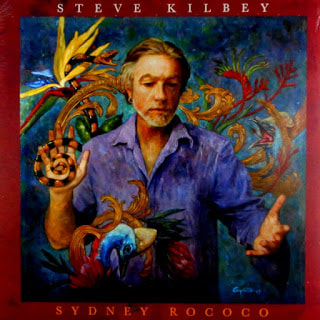
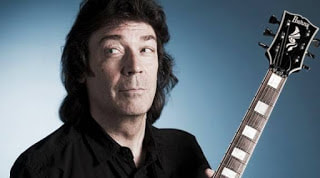
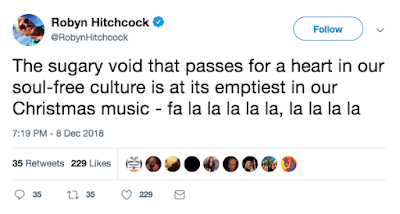
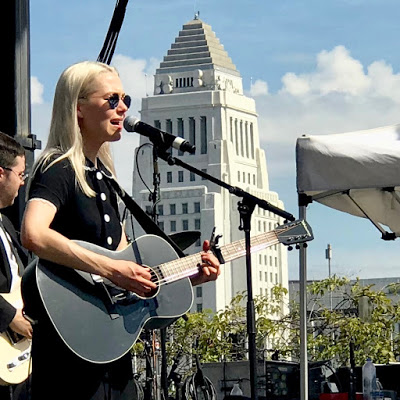
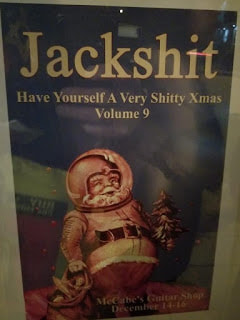
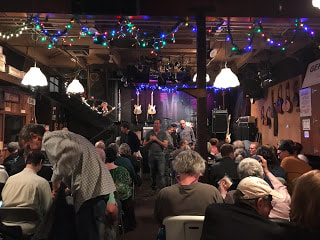
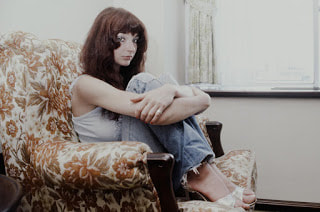
 RSS Feed
RSS Feed